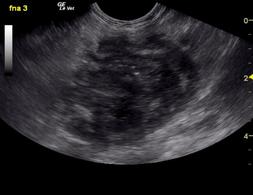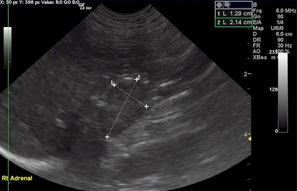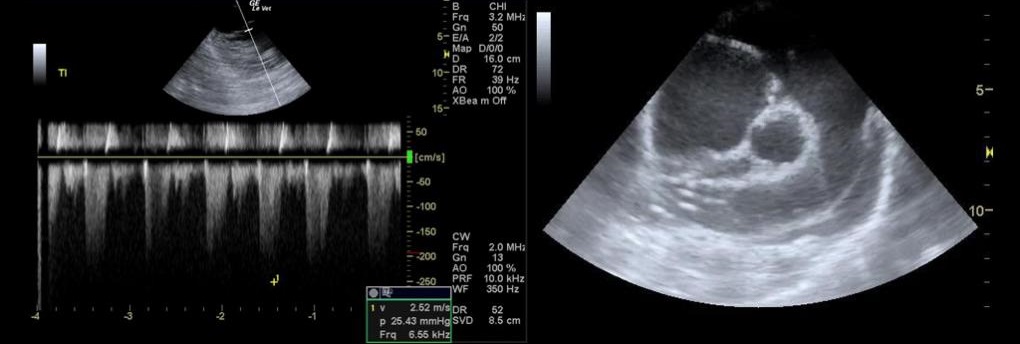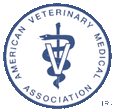Soft Tissue Ultrasound Examinations...The advanced diagnostic technique of ultrasound has become a standard of care in veterinary medicine allowing the practitioner the opportunity to opt for less invasive testing. The speed and accuracy of results frequently outweigh the client & patient stress, expense, and pain of more invasive diagnostics and surgery. When combined with various minimally-invasive biopsy techniques, a diagnosis can be safely and accurately determined in most cases. Conversely when based on ultrasound findings, the practitioner can be confident that more aggressive (and often necessary) procedures such as exploratory laparotomy are definitively indicated to further characterize or resolve a given problem.
Abdominal exam – liver, gallbladder & biliary system, stomach, pancreas, spleen, kidneys, adrenal glands, bladder, prostate, uterus, ovaries, bowel, vasculature, lymph nodes, mesentery & serosal surfaces. All abdominal ultrasound exams are complete exams. It is inappropriate to only examine part of the abdomen – all organs must be examined every time to ensure there is not occult pathology. Thoracic exam – if a mass effect exists on thoracic radiography, and the lesion is along the thoracic wall or the lesion is suspended in pleural effusion, the lesion may be found with ultrasound and if it can be seen, in most cases it can be biopsied to yield a diagnosis. Pregnancy - confirm pregnancy, estimate litter size (although this is best done with radiography), confirm fetal viability Parathyroids & Thyroid Glands – indicated if there is hypercalcemia and elevated serum PTH. Sedation generally required providing complete relaxation of the head. Cryptorchid Exam – localize the cryptorchid testicle prior to surgery to help minimize surgical time and surgeon frustration. Ocular Exam – used to rule-out primary neoplasia of the eye or retrobulbar space, retrobulbar abscess, retinal detatchment, retrobulbar biopsy. General Health Screen – this exam intended for the clinically healthy patient to rule-out occult disease (ie., abdominal neoplasia, cardiomyopathy in breeds at high risk, etc.) |
Veterinarians...
Please call or text (480) 760-5878 to schedule a mobile ultrasound appointment at your hospital. |
Cardiac Ultrasound Examinations...
Echocardiography can be used to determine the source and extent of cardiac pathology including:
- Valve structure & motion
- Chamber sizes
- Wall thicknesses
- Myocardial contractility & heart rate
- Intra-cardiac pressures and indirect systemic and pulmonary blood pressures
- Outflow tract velocities
- Congenital defects can be accurately assessed to determine treatment options and prognosis.
- Therapeutic options are better developed as a result of knowing the extent of the pathology present.
- Response to therapy can then be measured using the animal as his own control.
- Many cases benefit most from referral to a veterinary cardiologist for therapeutic management or surgical intervention and our PET SCAN examination will help determine when to refer the client.
Ancillary Services
In addition to comprehensive sonographic examinations, we offer the following ultrasound-guided ancillary services:
- Fine needle aspirates
- TruCut biopsies
- Centesis (ie., cystocentesis, abdominocentesis, thoracocentesis, pericardiocentesis)
- Joint infusion (ie., corticosteroids, stem cells)




